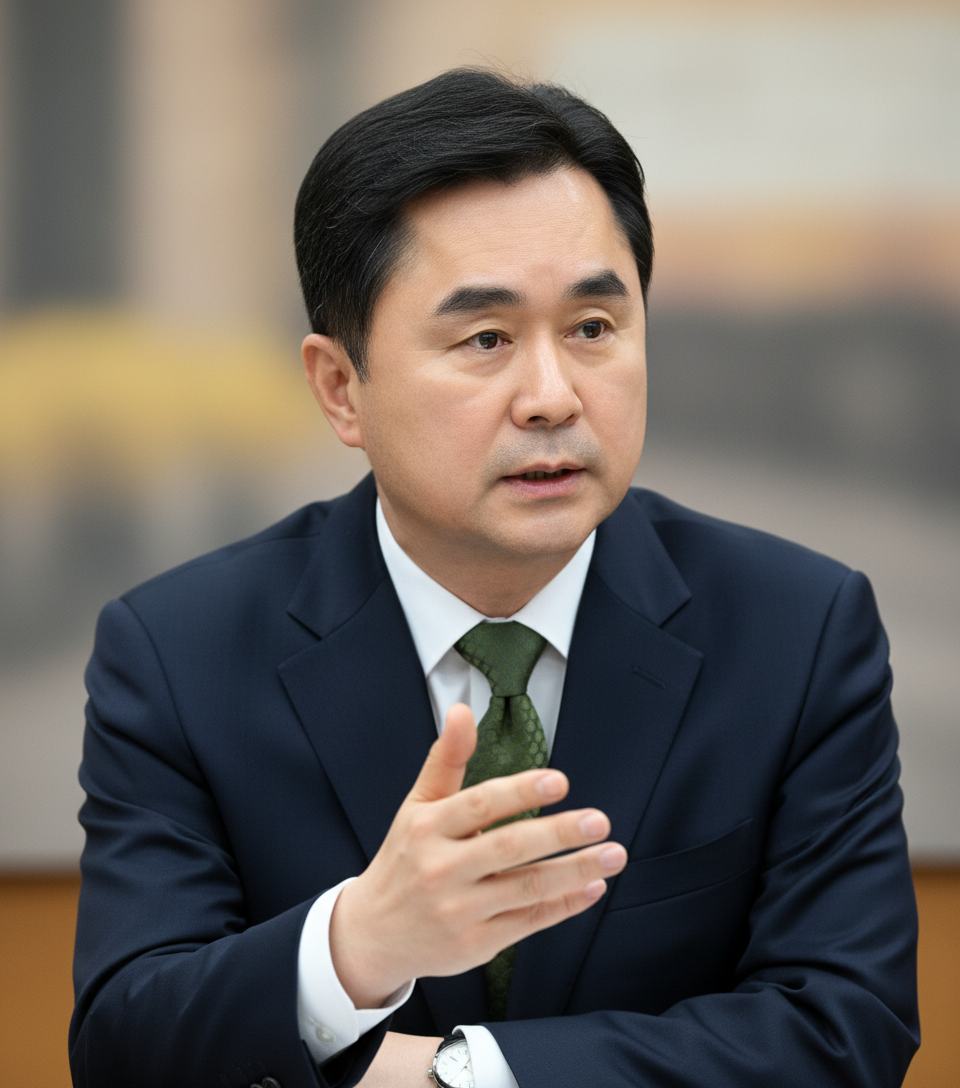Lawmaker Kang Joon-hyun Flags Bias in Unification Research Institute Studies

Lawmaker Kang Joon-hyun Flags Bias in Unification Research Institute 'Founding Day' Study - Key Points
Rep. Kang Joon-hyun (Democratic Party, Sejong Eul), a member of the National Assembly's National Policy Committee, voiced concerns regarding historical bias evident in research projects conducted by the Unification Research Institute. Kang specifically argued that the institute's research projects are skewed toward a particular ideology, potentially compromising the neutrality of public policy. He emphasized that biased research, if used as the basis for unification policies, could undermine the foundation of national policy and urged the institute to ensure objectivity and balance in its research. Kang's concerns echo existing worries among academics and researchers within the institute regarding the direction of its research. In particular, the claims of a '1948 founding' and that 'Korean independence was granted by the international community' are criticized as not only violating the spirit of the constitution but also diminishing the historical significance of Korea's independence movement. This historical perception, it is argued, extends beyond mere academic debate and poses a serious problem by potentially negatively impacting the establishment of unification policies and foreign relations.
Rep. Kang Joon-hyun challenged the Unification Research Institute's use of the phrase '1948 founding' alongside the statement that 'Korean independence was granted by the international community' in its published research. This assertion is criticized for potentially denying the legitimacy of the Provisional Government of the Republic of Korea and contradicting the spirit of the constitution. In particular, the claim that 'Korea gained independence through the decisions of the Allied Powers, not through an independence movement' is seen as invalidating the efforts of countless patriots who dedicated themselves to independence during the Japanese colonial period. Furthermore, the expression 'many people prefer being well-fed slaves' is criticized as demeaning the proactive will and capabilities of the Korean people, constituting a serious distortion of history. Such claims are similar to the self-deprecating historical perspective advocated by the New Right, which is criticized as an act of self-denial of the Republic of Korea's legitimacy. Kang pointed out that this bias in historical perception is affecting unification policy research and emphasized the need for a comprehensive review of the Unification Research Institute's research direction.
The Unification Research Institute's excessive emphasis on former President Syngman Rhee as the 'founder of the liberal democratic system' is also drawing criticism for lacking academic balance. While recognizing Rhee's contributions, his faults must also be objectively assessed. Overly glorifying a specific individual can distort historical facts and obscure balanced perspectives. Kim Cheon-sik, the head of the Unification Research Institute, is reported to have repeatedly echoed perceptions similar to Democratic Party leader Lee Jae-myung's characterization of communism as 'communist totalitarianism' during academic conferences and dialogues, defining progressive forces as totalitarian. This is criticized as seriously undermining the political neutrality of the head of a research institution. Internal Unification Research Institute employees have also expressed concerns about the compromise of research neutrality, with employee satisfaction surveys indicating that more than half are dissatisfied with personnel and decision-making processes. This demonstrates serious internal conflicts and dissatisfaction within the Unification Research Institute, which is cited as a factor that could impede the stable operation of the research institution.
A more serious concern is that the Unification Research Institute's biased research could negatively affect relations with Japan and foreign policy. Positively highlighting 'security cooperation between the US, Japan, and South Korea' while effectively justifying Japan's constitutional reinterpretation and expansion of its military role could raise concerns among neighboring countries. In addition, passages that could spark 'pro-Japanese diplomacy' controversies have been identified, raising fears of diplomatic friction. The fact that some of the research leaders have been confirmed to have participated in rallies opposing the impeachment of President Yoon Suk-yeol raises further questions about the fairness and objectivity of the research. The New Right historical perspective, which views Japanese colonial rule as modernization and liberation as a gift from foreign powers, is criticized for aligning with Japan's historical revisionism. This historical perspective has been repeatedly controversial in Korean society, and the fact that this perspective is openly being researched at a national research institution that produces the basic data for unification policy is a serious problem. Rep. Kang Joon-hyun emphasized, "The Unification Research Institute is an institution that researches peaceful unification plans and should not become an organization swayed by political ideology," adding, "The biased research groups must be abolished, and Director Kim Cheon-sik must make a responsible decision."
It is once again emphasized that the historical interpretation of public institutions should be based on the constitution and historical facts, not on individual political leanings. This is especially true for institutions such as the Unification Research Institute, which influence the determination of important national policy directions. Rep. Kang Joon-hyun stated that he will continue to make efforts to correct the bias in historical perceptions that has appeared in the Unification Research Institute's research projects and to restore the objectivity and balance of the research. He also added that the National Assembly will closely monitor the Unification Research Institute's research activities and promote institutional improvements where necessary. It is hoped that Rep. Kang's efforts will contribute to ensuring that the Unification Research Institute maintains political neutrality and engages in unification policy research with an objective and balanced perspective. As an important institution that conducts policy research for the peaceful unification of Korea, the Unification Research Institute has a responsibility to conduct objective and fair research without any political bias. Therefore, the Unification Research Institute should use this controversy as an opportunity to review the overall research system and strengthen efforts to ensure the objectivity and fairness of its research. Through this, the Unification Research Institute will be able to restore public trust and become an institution that contributes to the peaceful unification of Korea.
